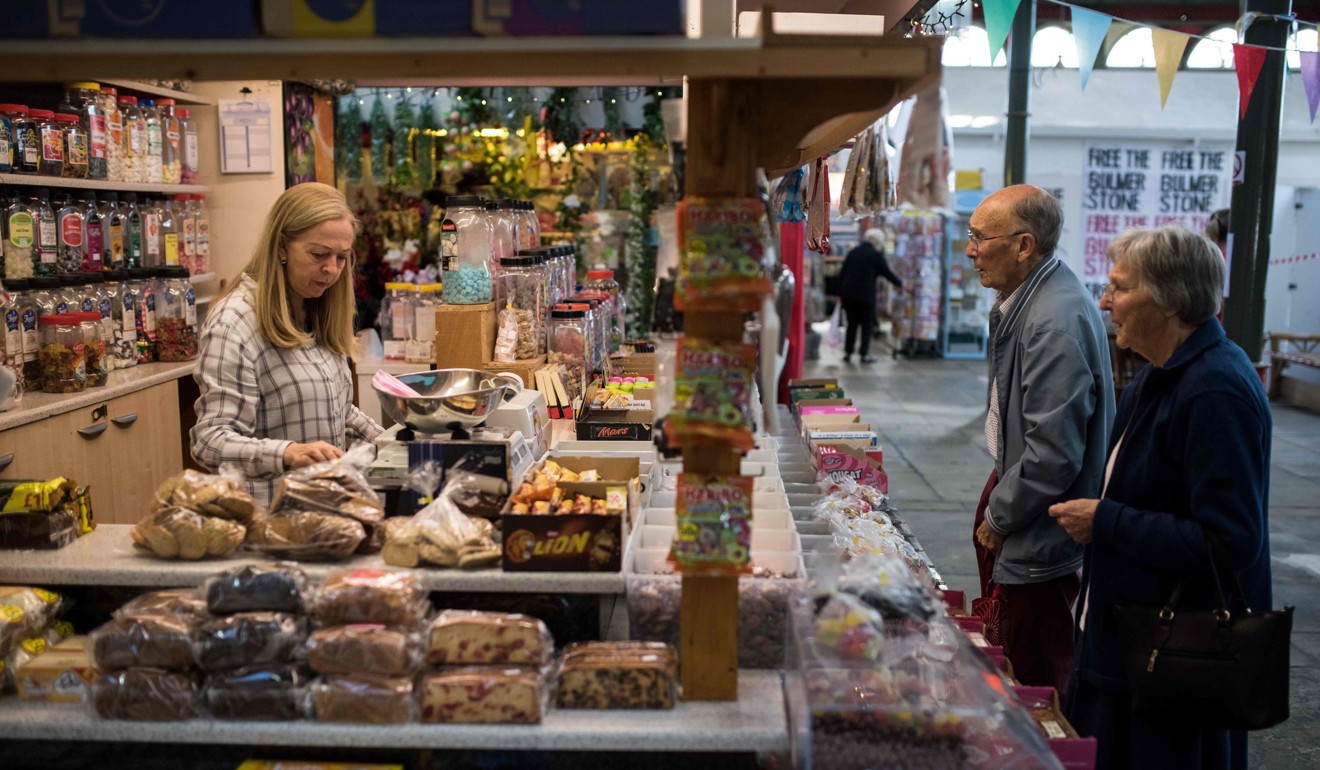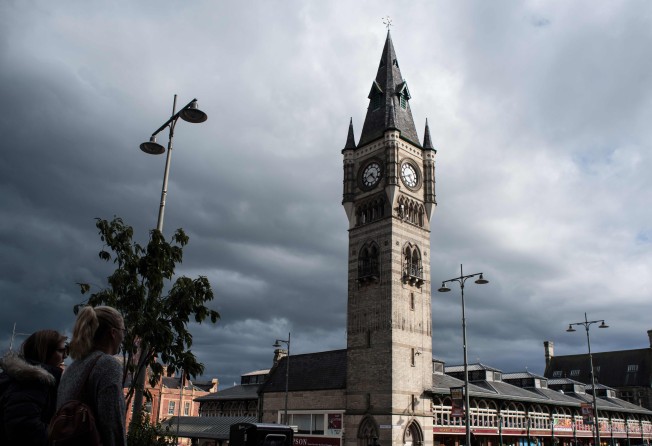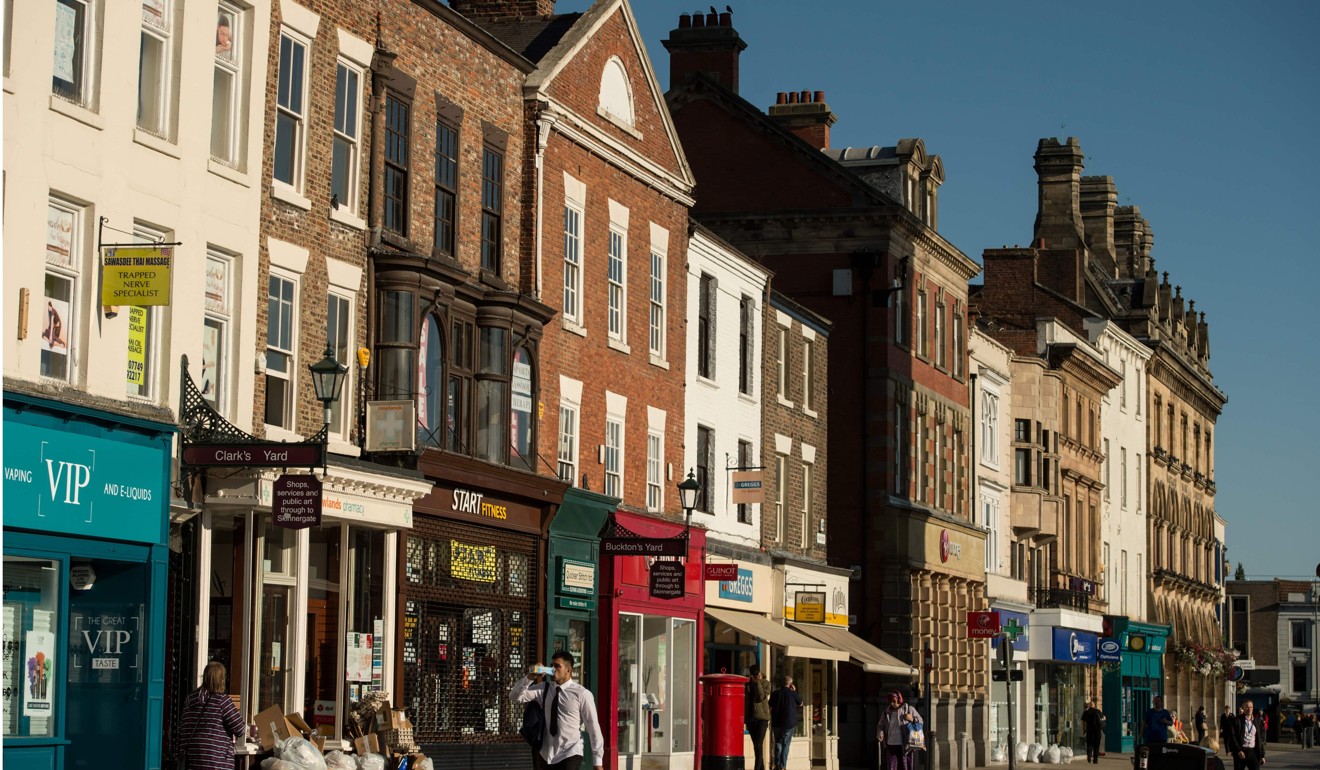
British market towns embrace foodie wave to revive ailing centres
UK welcomes the era of the ‘experiential consumer’, as officials attempt to reboot and liven up the hearts of local communities, and help them rediscover their sense of identity

Can craft beer and sourdough pizza heal Britain’s ailing market town centres after a pummelling from the internet and retail parks?
Macclesfield is joining a growing band of small towns about to find out.
The Cheshire town is trying to harness the national foodie obsession to claw back the social purpose of its heart. The council is poised to approve plans for a communal food hall in a redundant cinema in an effort to turn the heart of the former weaving town into a place where people congregate again.
It follows a successful trial of the concept in nearby Altrincham, in which a food hall has been combined with a gastro-regeneration project, helping slash vacancy rates in half. Leaders in about 30 other struggling town centres across the UK have expressed an interest in the model too.
Visits to UK town centres are down 17 per cent over the past decade as online purchases rise 10 per cent a year.
On average, more than one in 10 shops have stood empty for at least 12 months, partly the legacy of 50 million square feet of out-of-town retail space being built from 2000 to 2009. Town centres’ function as a social adhesive has been eroded, sociologists warn.

Macclesfield’s move comes as MPs launched an inquiry into the state of the UK’s town centres which heard a warning from Savills, the property consultancy, that high streets could no longer be primarily retail locations but “need to become vibrant, flexible social hubs”. We are entering “the era of the experiential consumer”, Savills said.
Amid grave warnings for the current style of high street shopping, Andrew Carter, the director of the Centre for Cities think tank, said town centres must be reimagined as a place where “the theatre of life can thrive”.
Big retailers such as BHS and House of Fraser are high-profile casualties but many other high street fixtures which serve a rich social purpose have suffered badly, too. The number of independent bookshops almost halved between 2005 and 2018, with 677 shops folding.
But some towns are fighting back. Since 2012, Bradford has offered business rate rebates and capital grants to revitalise its city centre, resulting in 45 new start-ups creating 730 jobs.
Rochdale is trying to increase the amount of housing in its town centre, converting empty offices, which will boost footfall.
In Macclesfield, a bank, a couple of furniture shops and a solicitors office are just some of the vacant buildings on its high street.

The idea to reboot the town is being championed by Nick Johnson, a property developer and former government adviser on regeneration.
Five years ago, he took charge of the Altrincham market and helped bring the town centre back from a 25 per cent vacancy rate in 2014 to 10 per cent today.
Its market now turns over £5 million (US$6.54 million) a year and, on one lunchtime this week, the communal tables in the foodhall were nearly all full with schoolgirls eating pizza at one table and some retirees sharing a bottle of wine at another, alongside young families and office workers.
With halloumi fries and Lebanese wraps and market stalls selling £200 jeans alongside regular fishmongers and butchers, it undeniably appeals to bourgeois tastes.
Johnson says it is vital to bring the middle classes back to the centres of market towns, not least for their disposable income.
“It has changed Altrincham,” said Alan Gurley, 76, a retired garage owner sharing wine with friends. “It has brought people in and lots of other bars around here have opened up.”
I see this as a model for how you could restore the high street. The only way to do it is to bring in the quality goods that you can’t buy online and reward customers with an experience that you don’t get sitting lonely, ordering on your computer screen
Johnson “curates” the market with outlets hand-picked for quality and with an emphasis on giving new businesses a chance.
Macclesfield will be the same. Unlike the high street where occupants face leases and business rates that are payable regardless of their trading performance, Johnson charges a percentage of their turnover. It means less risk for the business and no need for failing businesses to linger on waiting for a lease to expire before eventually quitting and leaving a void.
“I see this as a model for how you could restore the high street,” he said. “The only way to do it is to bring in the quality goods that you can’t buy online and reward customers with an experience that you don’t get sitting lonely, ordering on your computer screen.”
Macclesfield people seemed keen. “We’ve got too many second-hand shops,” complained Shelley Heath, 68. “Mothercare closed, Next moved. We’ve got nothing. This might liven things up.”
A spokeswoman for Cheshire East council said: “With the rise of internet shopping we need more footfall. A food market could be a massive footfall generator by creating a social space. We want to have places in the borough that are inclusive.”
The Local Data Company, which analyses retail, currently gives Macclesfield just four out of 10 in its high street health index, while its out of town retail parks are ranked as in much better shape.
Professor Cathy Parker, a Macclesfield resident and academic at the Manchester Metropolitan University’s business school who studies town centres, said good markets had been shown to raise footfall by almost a third when they are operating.
“People need town centres to thrive for their sense of identity,” she said.
“We like to feel we have put down roots. If it is all boarded up shops, what is that saying about us? It is a visual indication of failure. If all of our towns are struggling, it is not surprising there is national angst.”